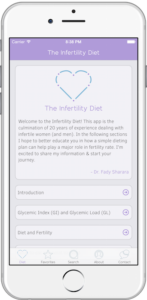What is Polycystic Ovary Syndrome, PCOS?
Polycystic ovary syndrome is a hormone imbalance that interferes with normal ovulation. Women with PCOS do not have normal, regular menstrual cycles. This hormonal imbalance also affects other body systems, such as the metabolic and cardiovascular systems.
Most women with PCOS will have numerous (poly) small cysts (cystic) on their ovaries at some time (pearl necklace appearance on sonogram). However, some women with PCOS do not have polycystic ovaries but have other symptoms of the syndrome.
What causes PCOS?
The cause of PCOS is not fully understood, but genetics play a factor. You have an increased risk of PCOS if you have a family history of PCOS, diabetes, heart disease, high blood pressure, and high cholesterol. If you have the syndrome, your sisters and daughters have a 50% chance of developing PCOS. There has been several studies that associate high carbohydrate diet with an increased incidence of PCOS.
What are the symptoms of PCOS?
Because there is such a wide range of symptoms, PCOS is defined as a syndrome, not a disease. The most common symptoms are irregular menstrual cycles; acne; weight problems, such as weight gain or upper body obesity; and abnormal hair growth. Many women also experience infertility or pregnancy loss. The ovaries often become enlarged and may contain one or more abnormal cysts. Enlarged ovaries are easily detected by a transvaginal ultrasound.
Many symptoms occur either early in the condition or develop gradually. Women with PCOS, especially overweight women, may have insulin resistance and have an increased risk for diabetes and high lipids.
How is PCOS diagnosed?
There is no single test to diagnose PCOS. It is diagnosed in women who have irregular menstrual cycles when blood tests or physical symptoms suggest they may have elevated levels of male hormones, hirsutism, or the typical PCOS pattern noted on ultrasound. Many women are diagnosed with PCOS after being evaluated for miscarriages and infertility. The ASRM-ESHRE criteria to diagnose this condition includes having 2 of these 3 findings:
1. High androgen levels
2. Irregular cycles
3. Polycystic appearing ovaries on ultrasound
How is this condition treated?
PCOS may increase your risk of developing other conditions or diseases over time, such as diabetes, high cholesterol, heart disease, and endometrial hyperplasia. Treatment involves weight loss, diet change, and increasingly, medications called Insulin sensitizers (such as Glucophage [Metformin], Actos, Actoplusmet, Avandia, Avandiamet).
Symptoms
Many symptoms of polycystic ovary syndrome start gradually and, at first, may be thought to be related to some other medical problem. You may have only a few symptoms or many symptoms.
Symptoms of this condition include:
- Fewer than eight menstrual cycles in a year, more than 35 days between cycles, or no menstrual periods. Failure to ovulate each month occurs in almost 50% of women with PCOS.
- Abnormal vaginal bleeding. This symptom occurs in about 30% of women with PCOS.
- Excess hair growth (hirsutism) on the face, chest, back, stomach, thumbs, or toes. More than 70% of women with PCOS complain of excess hair growth.
- Skin problems, such as acne, oily skin, dandruff, dark skin patches (acanthosis nigricans) on the neck, groin, underarms, or in skin folds, or skin tags (acrochordons) in the armpits or neck area.
- Depression or mood swings. Many women have emotional problems related to the many physical symptoms, such as excess hair, obesity, or infertility.
- Weight gain or upper body obesity (more abdominal fat than hip fat). This is also known as android obesity and is related to increased male hormone (testosterone) levels.
- Infertility.
- Symptoms of insulin resistance, which increases the risk of developing diabetes in women with PCOS. You may also develop diabetes at a younger age because of PCOS. About 30% of women with PCOS have impaired glucose functioning, and 7% to 10% have type 2 diabetes. Some symptoms associated with insulin resistance include skin changes, such as skin tags or dark skin patches (acanthosis nigricans) and upper body weight gain.
- High blood pressure (hypertension).
- Male pattern baldness or thinning hair (alopecia).
Most women with PCOS seek medical evaluation for a specific symptom, not knowing that they have PCOS. The most common reasons women seek evaluation are:
- Menstrual problems.
- Excess hair growth (hirsutism).
- Infertility.
- Weight gain or upper body obesity.
Conditions with symptoms similar to PCOS
Conditions that cause symptoms similar to PCOS include:
- High prolactin hormone levels.
- Excess adrenal hormones. This excess level may be present from birth (congenital adrenal hyperplasia) or may occur in adulthood, causing irregular menstrual cycles and excess hair growth (hirsutism).
- Cushing’s syndrome.
- Tumors of the ovary or adrenal gland that produce male hormones.
- Thyroid problems, such as autoimmune thyroiditis, hypothyroidism, or hyperthyroidism.
- Eating disorders.
You may have more regular menstrual cycles as you near menopause. The reason for this is not known. However, your history of PCOS may still increase your long-term risk of high blood pressure (hypertension), heart disease, diabetes, or endometrial cancer.
Exams and Tests
If you are not pregnant or breast-feeding and have had fewer than 8 menstrual cycles in the past year, an evaluation for polycystic ovary syndrome or other hormonal problems is needed. PCOS has such a wide range of symptoms that no single test can be used to diagnose it.
Your physician will ask about your medical history and will perform a physical examination. The medical history includes questions about your menstrual cycles and your lifestyle, including what you eat, changes in your weight, how you exercise, as well as questions about any family history of endocrine problems. The physical examination include a pelvic exam and a vaginal ultrasound.
Additional blood tests might also be done to determine whether other conditions that have symptoms similar to PCOS (as noted above) might be present.
Treatment Overview
Weight problems or metabolic problems that may develop with polycystic ovary syndrome are usually treated with medications and lifestyle considerations. However, since this condition causes many different symptoms and problems, treatment varies from woman to woman.
The treatment you and your health professional select will focus on:
- Managing your specific symptoms, such as irregular menstrual cycles, excess hair growth (hirsutism), or infertility.
- Preventing long-term complications, such as weight gain, diabetes, or high blood pressure (hypertension).
- Changing your diet to a low carbohydrate-high protein diet such as our own “The Infertility Diet” which is a high protein-high (good) fat-slow carb diet (www.theinfertilitydiet.com). You can download The Infertility Diet app in the App Store.
- Reducing your risk for developing other medical conditions, such as heart disease, high cholesterol, or endometrial hyperplasia.
Since this is a lifelong condition, your treatment may change as you age. However, most women can lead healthy lives with medical treatment and lifestyle changes.
Contact us to learn more about treatment for this condition.


